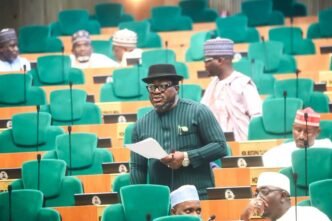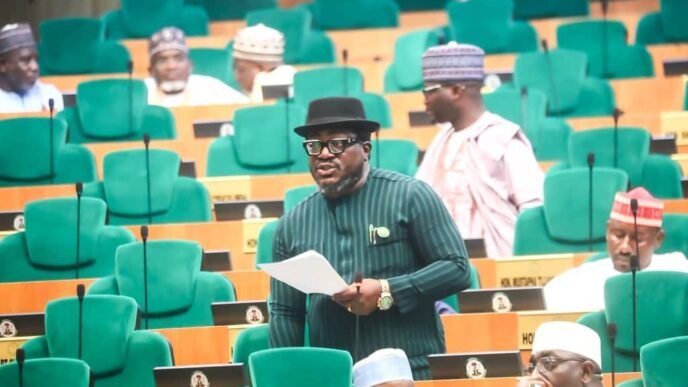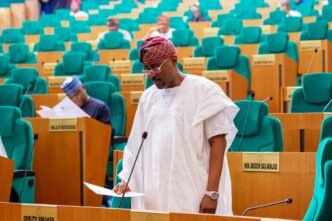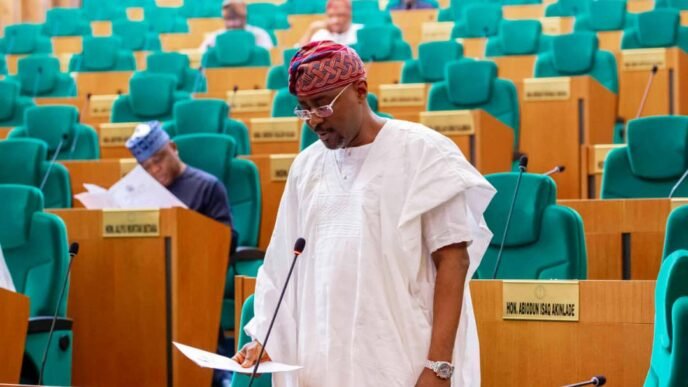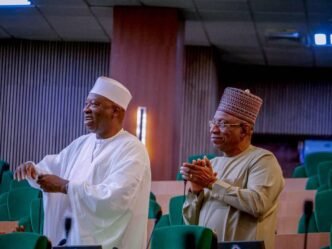Tuesday, November 11, 2025 | A bill to amend the Customs and Excise Tariffs (Consolidation) Act has passed its second reading in the Senate. Sponsored by Sen. Ipalibo Harry Banigo (PDP – Rivers West), the bill earmarks excise duties on non-alcoholic, carbonated, or sweetened beverages to fund initiatives and infrastructure aimed at improving the health of Nigerians.
The amendment is designed to make Nigeria’s taxation system more responsive to the nation’s health needs by ensuring that part of the existing sugar-sweetened beverage (SSB) tax directly funds primary healthcare and preventive initiatives.
Banigo, a medical doctor and former Deputy Governor of Rivers State, said the proposal was “not a new tax,” but a strategy to “put existing revenues to better use in improving the wellbeing of Nigerians.”
“This amendment is not merely fiscal in nature; it is a public health investment strategy that aligns taxation policy with our national health priorities,” she said. “It seeks to redirect part of the current excise revenue from sweetened beverages to fund preventive health programmes and strengthen healthcare delivery at the grassroots.”
She explained that excessive sugar consumption has become a major driver of non-communicable diseases (NCDs) such as diabetes, obesity, hypertension, and heart disease which now account for more than 30 percent of annual deaths in Nigeria.
According to her, while these diseases are largely preventable, government investment in public health remains inadequate.
“More than two decades after the Abuja Declaration, where African leaders pledged to commit 15 percent of national budgets to health, Nigeria is yet to meet that target,” she said. “With dwindling donor support and the exodus of health professionals, we must innovate within our fiscal system to secure sustainable domestic funding for health.”
The senator highlighted that several sectors already benefit from earmarked levies within existing laws including education, defence, and technology but none currently support the health sector.
“Public health is conspicuously missing from this framework,” she observed. “This bill seeks to correct that by making health a beneficiary of excise revenues, particularly from products that contribute to poor health outcomes.”
If passed, Banigo said, the amendment would create a dedicated fund to support preventive health programmes, community-level healthcare infrastructure, wellness education in schools and workplaces, and early screening for lifestyle-related diseases.
She pointed to successful examples in South Africa, Mexico, and the United Kingdom, where similar earmarking of excise taxes had improved public health outcomes and encouraged both manufacturers and consumers to adopt healthier alternatives.
“This approach will make Nigeria’s tax framework smarter, more purposeful, and people-centered,” Banigo said. “Every naira collected from health-risk products should directly contribute to protecting and improving public health.”
Speaking further, she urged senators to support the bill for second reading, emphasising that it would turn fiscal policy into a “tool for disease prevention, health promotion, and human capital development.”
“This is about ensuring that our tax system works for Nigerians,” she concluded. “By earmarking part of the soft drink tax for health, we are investing in our people, our productivity, and our future.”
The bill was approved for second reading and committed to Committees on Finance, Commerce and Health for further legislative attention.






